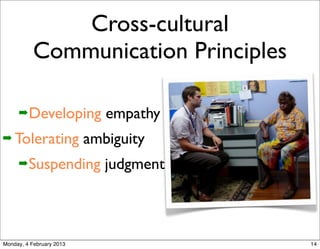This document discusses communication principles and barriers in providing healthcare to Aboriginal Australians. It outlines principles for effective communication, including developing empathy, tolerating ambiguity, and suspending judgement. Barriers to communication are explored, such as physical environment, relationships, and social/cultural factors. Strategies are proposed for improving encounters, including being aware of power dynamics and differences in discourse."

















































